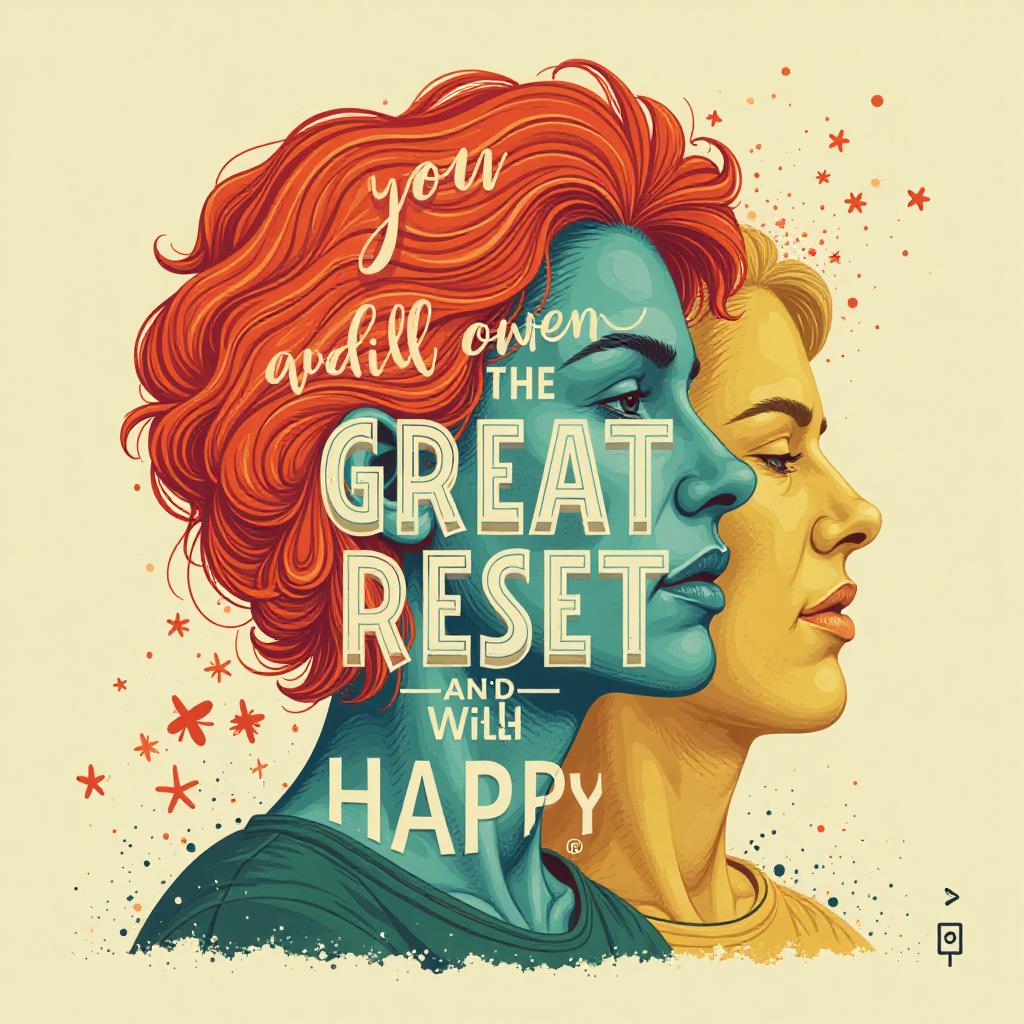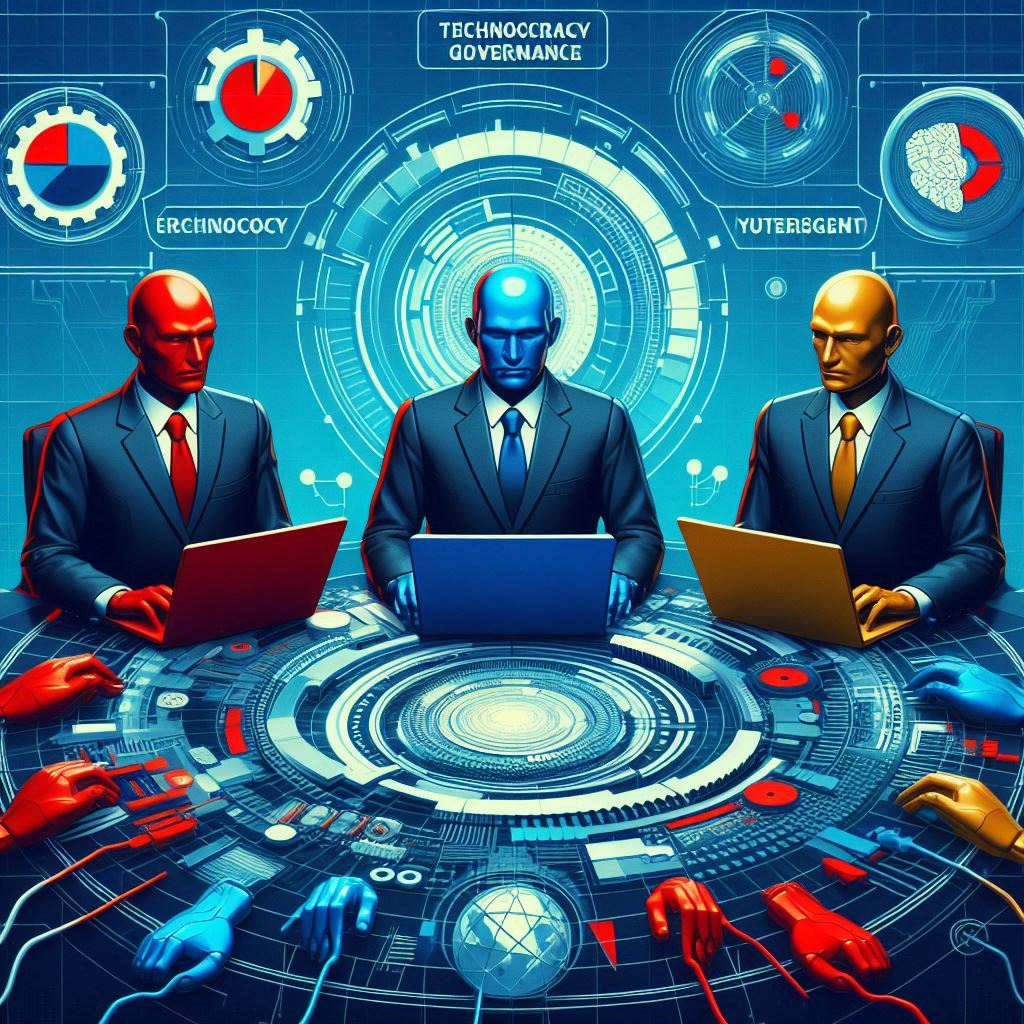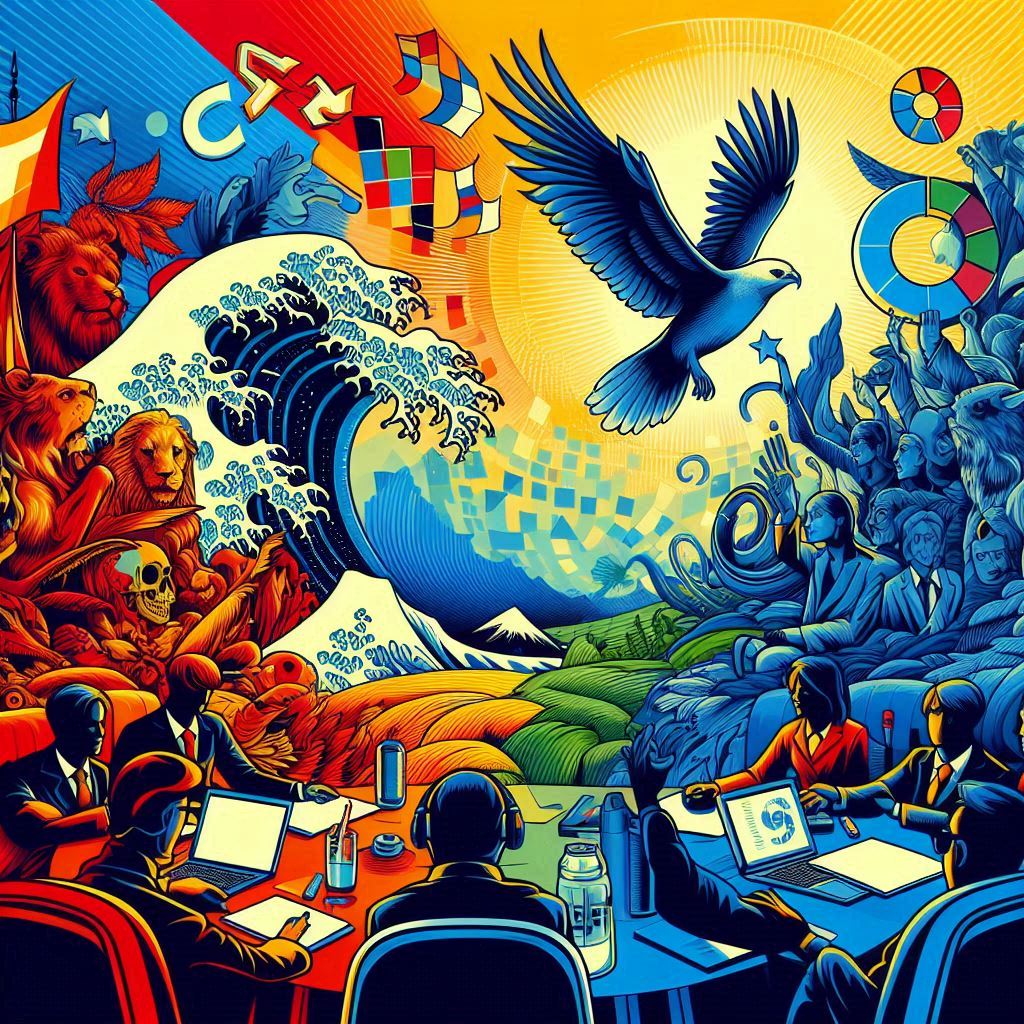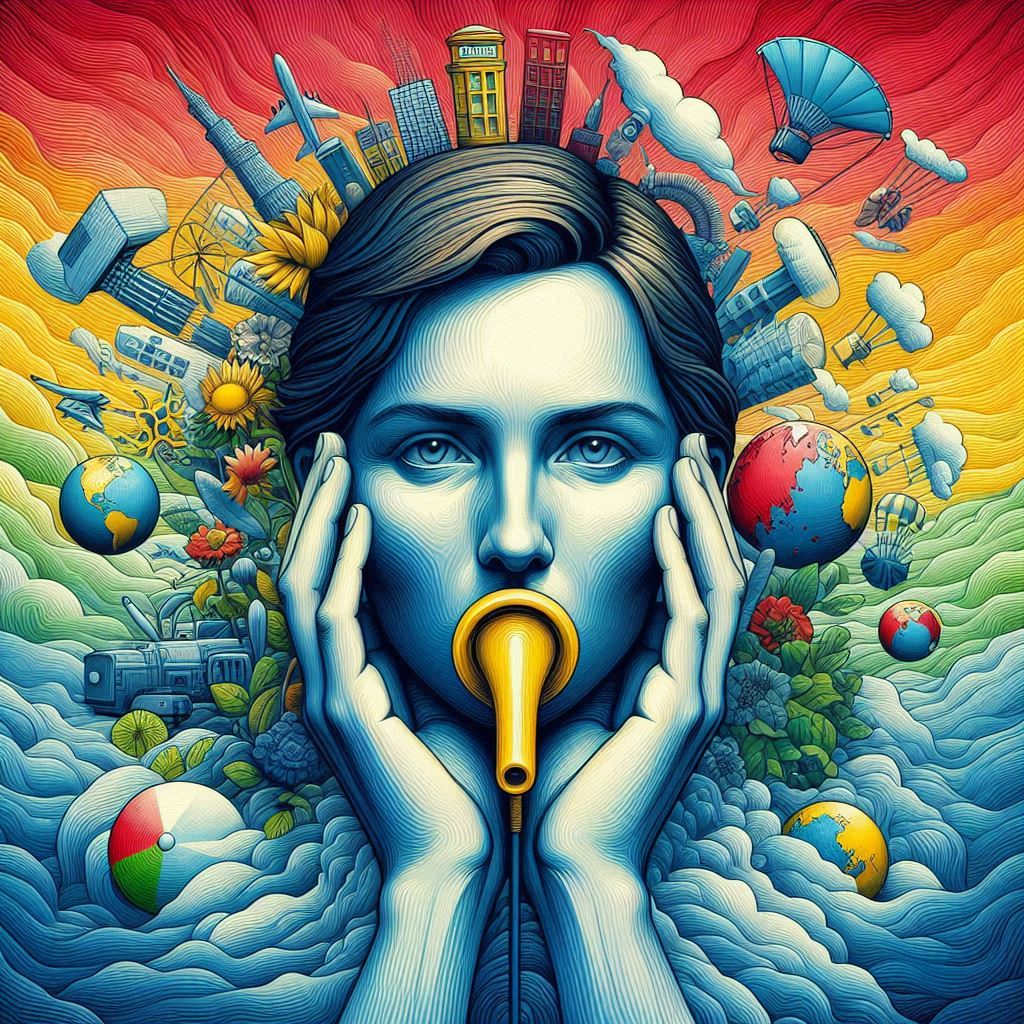The Great Reset: You Will Own Nothing, and You Will Be Happy.
The world is undergoing a great reset. In this new world, you will own nothing and be happy. This may sound like a utopia, but it is a new reality that we must face. The old system of capitalism is no longer sustainable. We must find a new way to live and work together.
In the old system, we were told we needed to work hard to get ahead. But in the new world, there is no need to work hard. The world is already ours. We need to take responsibility for our own lives and happiness. The great reset will not be easy, but it is worth it. In the new world, we can live a fulfilling and joyful life for the rest of our lives.
In the new world, we will have abundant access to unlimited resources. It will be a place where we can all be our true selves and express our authentic selves.
We will be able to connect on a much deeper level and create relationships that are based on love and respect. We will live in harmony with nature and all of its creatures. We can explore new frontiers and discover hidden talents and abilities.
In the new world, we will be able to create anything that we can imagine. We will be free to pursue our dreams and live our lives to the fullest. We can create anything we desire and live in complete harmony with nature. There will be no more wars or conflicts, and we will all be able to live in peace and harmony.
The World Economic Forum says that by 2030, you will own nothing and still be happy – what do they mean?
The World Economic Forum has released a report detailing eight predictions for the world by 2030. Among these predictions is the claim that by 2030, you will own nothing and still be happy. The report cites the rise of the sharing economy as one reason people will own less in the future. With platforms like Airbnb and Uber, people are increasingly willing to share their possessions rather than own them outright. The report also predicts that the middle class will shrink as wealth becomes more concentrated among a few people.
This could make people less materialistic and more focused on experiences than possessions. Finally, the report claims that life savings will no longer be enough to sustain people in retirement, leading to a need for a new way of thinking about work and retirement. Technocracy, or the rule of experts, is one possible solution the report mentions. The Great Reset: You Will Own Nothing, and You Will Be Happy explores the idea of technocracy and its implications for the future of society.
The report outlines that technology will soon render most human labor obsolete and that the world will be governed by a technocratic elite who will manage all aspects of society. It argues that this future is inevitable and will be good for humanity. Klaus Schwab, the founder and executive chairman of the World Economic Forum, wrote the book.
In 2030, you’ll own nothing and be happy about it – is this possible?

In 2030, you will own nothing and be happy about it. This is the prediction of Danish politician Ida Auken, who believes that shifting to a circular economy will lead to a more optimistic and sustainable way of life. In a circular economy, we would rent or share instead of buying new products. For example, instead of buying a new home, we would live in a shared community with access to all the necessary amenities.
Appliances and clothes would be rented instead of purchased, and everything would be designed to be reused or recycled. This would significantly reduce the amount of waste produced and lead to a more sustainable way of living. Auken believes this shift will lead to a more sustainable and equitable world where we are happier because we own less.
The idea of a circular economy has been around for a while, but it has recently gained traction due to the global environmental crisis. Our current system is unsustainable. We use resources faster than they can be replaced, producing more waste than ever. In a circular economy, we use resources more efficiently and produce less waste. This would be a step in the right direction toward solving the global environmental crisis.
The idea of a circular economy has been around for a while, but it has recently gained traction due to the global environmental crisis. The problem with our current system is that it is unsustainable. We use resources faster than they can be replaced, producing more waste than ever. In a circular economy, we use resources more efficiently and produce less waste. This would be a step in the right direction toward solving the global environmental crisis.
The World Economic Forum’s Great Reset agenda – what’s the likelihood of it happening?
The World Economic Forum’s Great Reset plan has been very skeptical. Some people believe that it is a grand conspiracy by the global elite to control societies and economies. Others believe that it is a well-intentioned but ultimately unrealistic plan. Either way, the Great Reset would require a massive change in how we live and work. It is doubtful that such a change could be achieved without significant upheaval.
The differences between the European national approaches are too tremendous and entrenched to allow an easy transition to a pan-European system. National interests would have to be subordinated to the interests of the European Union as a whole. Many efficiencies, transparency, and accountability improvements would have to be made, and these could only be achieved if there was a significant amount of political will at all levels.
Therefore, the concept of a pan-European approach to food safety is unlikely to be realized in the near future. However, the present system is clearly not working well, and changes are needed. It is equally clear that a new system cannot be imposed from above and that any change must involve the active participation of all who have a stake in food safety.
However, to achieve that objective, governments need to adopt a more strategic approach to food safety. They must be much more proactive in dealing with threats to the food supply and take a more holistic view of the issues involved.
They should examine ways of strengthening the food safety systems already in place, which are often undermined by inadequate resources.
They also need to ensure that these systems are backed up by effective enforcement mechanisms that will enable them to detect and deal with breaches of food safety standards.
Adopting such an approach will require a significant shift in government thinking, but it is essential to building a safer and more secure food supply.
The Great Reset: A Future Without Ownership and the Shift to Shared Economy
The “Great Reset” is a bold vision championed by the World Economic Forum (WEF). It envisions a world by 2030 where ownership becomes a thing of the past and happiness is derived from access rather than possession. This transformative concept aims to address the pressing challenges of sustainability, inequality, and technological advancements through the rise of sharing and circular economies. Below is a comprehensive breakdown of the core components driving this envisioned future.
Comparative Table
| Aspect | Details |
|---|---|
| 2030 Prediction | The World Economic Forum predicts a future where “you will own nothing, and you will be happy.” |
| The Great Reset | This global initiative aims to reshape the world economy and address inequality, sustainability, and technology. |
| Ownership Shift | Emphasis on access over ownership, where personal possessions become obsolete due to technological advancements. |
| Rise of Sharing Economy | Services like Uber and Airbnb enable the shift from ownership to shared access of resources and services. |
| Circular Economy | A focus on renting or borrowing products to promote sustainability and reduce waste. |
| Technocracy & Governance | Society governed by technocratic elites and experts using advanced technologies for management and regulation. |
| Sustainability Focus | Reduced resource consumption through efficient sharing, recycling, and renting, which aligns with environmental goals. |
| Consumer Behavior Changes | People will adapt to a lifestyle focused on experiences rather than material ownership, driven by new digital platforms. |
| Challenges and Criticism | Transitioning to this new model will require overcoming current capitalist structures, leading to uncertainty and resistance. |
The “Great Reset” presents an ambitious future, prioritizing sustainability, shared resources, and innovation. While the potential for environmental and societal benefits is significant, the success of this vision depends on widespread societal buy-in and the ability to address structural inequalities and challenges. The question remains: Can such a transformative future truly deliver the happiness it promises?
Ownership Shift: Detailed Analysis and Criticism

- Cultural Resistance: Ownership has deep-rooted cultural and historical significance. Critics like James Suzman, author of Work: A History of How We Spend Our Time, argue that societies are wired to value ownership, and a shift toward sharing or renting might face resistance, particularly in Western economies where property ownership is tied to wealth, security, and social status.
- Economic Inequality: Diminishing ownership may exacerbate inequality. Matthew Desmond, a sociologist, points out that owning assets, particularly property, is a primary way for individuals to build wealth. Under the “Great Reset” model, those who control the platforms enabling sharing or renting could amass significant power and wealth. In contrast, others may depend more on corporate structures for their basic needs.
- Monopolization of Access: Critics like Douglas Rushkoff, author of Throwing Rocks at the Google Bus, warn of the potential monopolization of access. Large corporations could dominate the sharing economy, leading to fewer alternatives and greater control over pricing and availability, locking people into systems where they have little choice but to rent or subscribe.
- Shift in Consumer Freedom: The loss of ownership may also reduce personal freedom. Owning goods gives individuals autonomy over their use, resale, and modification. Without ownership, consumers might lose control over how they engage with products or services, as companies could enforce strict terms of use, as seen with software subscriptions or digital content today.
- Dependence on Digital Platforms: With the rise of the sharing economy, people increasingly rely on platforms to access goods and services. Critics like Jaron Lanier, author of Who Owns the Future?, express concerns that this growing dependence could leave consumers vulnerable to fluctuating subscription models, price hikes, and platform outages without the security of owning essential resources outright.
While the shift from ownership to access offers promises of sustainability and reduced resource consumption, it raises profound concerns regarding autonomy, inequality, and the concentration of power in digital platforms. The challenge for the Great Reset’s vision of the future lies in creating systems that are equitable, flexible, and protective of individual freedoms amidst this shift.
Technocracy & Governance: Detailed Analysis and Criticism

- Concentration of Power: A technocratic system centralizes control among a small group of experts. Critics like Shoshana Zuboff, author of The Age of Surveillance Capitalism, argue that this model could result in power being disproportionately concentrated in a technocratic elite’s hands, making decisions prioritizing efficiency over democratic participation.
- Democratic Erosion: The shift toward technocracy may erode traditional democratic processes. Yuval Noah Harari warns that the increasing reliance on data and AI for governance risks sidelining the role of voters and public representatives, potentially diminishing transparency and accountability.
- Algorithmic Governance: As proposed by the Great Reset, decision-making driven by algorithms and data analytics raises ethical concerns. Cathy O’Neil, author of Weapons of Math Destruction, points out that these systems can perpetuate biases and inaccuracies, leading to unfair outcomes, particularly for marginalized communities.
- Technological Dependence: Critics like Evgeny Morozov argue that relying heavily on technology for governance could make societies overly dependent on digital systems, which are vulnerable to hacking, manipulation, and systemic failure. This raises concerns about cybersecurity and the resilience of digital infrastructures in a world governed by technocratic principles.
- Loss of Human Element in Governance: There is a risk that governance will become too mechanical and detached from human concerns. Technological systems may prioritize data-driven outcomes over empathy, justice, and social well-being, potentially leading to decisions that favor efficiency over individual rights and welfare.
The rise of technocracy poses significant risks related to democratic governance, equity, and transparency. While it promises efficient decision-making, ensuring these systems are balanced with human oversight and accountability will be crucial to their success in creating a just and sustainable future.
Challenges and Criticism of the Great Reset

- Economic Disruption: Critics argue that transitioning to a system where ownership is diminished could destabilize current capitalist structures, leading to job losses in sectors dependent on consumerism and production. Economists like John Mauldin warn that disrupting private property ownership might damage global markets and stifle innovation.
- Technocratic Control: Some critics, such as Shoshana Zuboff, argue that technocracy could lead to an undemocratic concentration of power, with decisions made by elites rather than democratic institutions exacerbating inequality.
- Privacy and Surveillance: There are concerns over increased surveillance in a world driven by digital platforms. Yuval Noah Harari has raised the issue of privacy erosion in the name of convenience and efficiency, with concerns that centralized systems may track personal data for corporate or governmental benefit.
- Loss of Individualism: Opponents like Michael Rectenwald, a critic of globalist agendas, believe the Great Reset could undermine personal freedoms, with individuals forced into collective models that suppress entrepreneurial initiative and individual ownership.
- Resistance to Change: Transforming societal norms to prioritize access over ownership may face resistance from populations accustomed to property rights. Cultural and regional differences could intensify the challenge, especially in countries where ownership is tied to wealth and status.
These critiques reflect a broader debate over whether the Great Reset will bring prosperity or exacerbate existing global inequalities. The success of the vision depends on navigating these challenges carefully to ensure it balances innovation with societal well-being.
A Call to Reevaluate Our Global Priorities.

The COVID-19 pandemic has forced us to reevaluate our priorities as a society. Climate change, racial unrest, overpopulation, and inequality are all issues that we can no longer ignore.
We must address these problems, or they will only worsen. Climate change is already causing more extreme weather events, and we can expect even more extreme weather as the world gets warmer. This will impact our food and water supplies and our ability to live comfortably.
Racial unrest is also rising as people of color are increasingly marginalized and disadvantaged. This is especially true in the United States, where minorities are more likely to live in poverty and lack access to education and healthcare. Overpopulation also strains our resources as we struggle to provide enough food, water, and shelter for everyone. And inequality is growing as the rich get richer, and the poor get poorer.
These issues are interconnected, and we must address them together. We can no longer afford to ignore them. The Great Reset is an opportunity to reset our priorities and create a better future for all.
In a world turned upside down by the pandemic, the Great Reset offers us a chance to rethink our priorities and create a better future for all. Let’s use this opportunity to build a more sustainable, equitable, and inclusive world. We will own nothing, and we will be happy.
Closing Thoughts: Supporters vs. Detractors of the Great Reset
Ownership Shift
Supporters argue that shifting from ownership to access promotes sustainability and reduces waste, as seen in the rise of the sharing and circular economies. They highlight the environmental benefits and focus on experiences rather than material possessions. Detractors counter that this could exacerbate economic inequality, with large corporations controlling access and individuals losing autonomy over personal property. There’s also concern that wealth-building opportunities, traditionally tied to ownership, will be diminished, creating greater dependence on corporate entities.
Technocracy & Governance
Proponents see technocracy as a means to drive efficient, data-driven governance, where experts make decisions that could more effectively solve global challenges. They argue that technocratic systems powered by AI and algorithms can reduce corruption and optimize societal operations. Critics, however, argue that this risks concentrating too much power in the hands of unelected elites, sidelining democratic processes. They also fear the loss of human elements in governance, with decisions based on algorithms that may reinforce biases or overlook human welfare.
Economic and Social Control
Supporters believe that innovations like the sharing economy and technocratic governance will create more equitable access to resources, reducing the gap between rich and poor by making essential services more available. Detractors fear this will lead to excessive control by large corporations and technocratic elites, who may dominate key industries and decisions. The growing reliance on digital platforms could also introduce vulnerabilities like privacy erosion, data surveillance, and the potential for monopolies.
Consumer Behavior and Lifestyle Changes
Advocates argue that moving away from consumerism can foster a healthier, more sustainable lifestyle centered around minimalism and shared experiences. They see the Great Reset as an opportunity to redefine well-being and happiness, moving away from materialism. Opponents, however, worry that this shift may force people into dependence on rental or subscription-based services for basic needs, limiting their financial security and personal freedom. Many view ownership as a path to independence and a key way to build generational wealth.
Final Thought

The Great Reset’s vision promises a sustainable, technology-driven future, yet it also raises significant concerns about personal freedom, equity, and the concentration of power. While supporters see it as an opportunity to address urgent global challenges, detractors warn of potential risks that could undermine democracy, privacy, and individual autonomy. Balancing innovation with social fairness will determine whether this future can truly deliver on its bold promises.

Vizologi is a revolutionary AI-generated business strategy tool that offers its users access to advanced features to create and refine start-up ideas quickly.
It generates limitless business ideas, gains insights on markets and competitors, and automates business plan creation.


